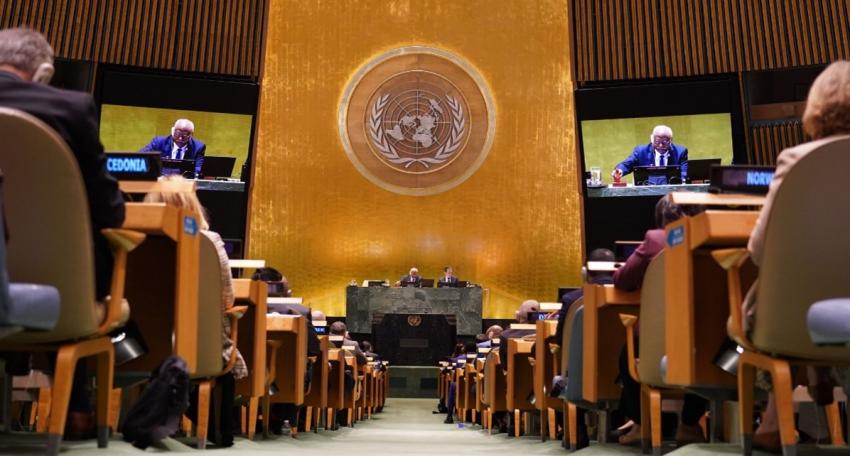Central Asian presidents at the UN
At the session marking the 80th anniversary of the United Nations, all five heads of state emphasised in their speeches how this region, torn apart by border conflicts for centuries, is now one of the most peaceful in the world, with growing economic cooperation. There was also a common position on Afghanistan, calling for an end to its isolation through pragmatism without official recognition of the Taliban.
Astana (AsiaNews) - At the jubilee session for the 80th anniversary of the United Nations, the five presidents of the Central Asian countries also spoke at the UN headquarters, describing the region as a place of peace and integration, a ‘bridge between East and West’ with a unique role in world politics, avoiding overly radical judgements and bombastic statements. Only Kyrgyz Sadyr Žaparov used more markedly populist tones, speaking of himself as an ‘ordinary citizen’.
The topics addressed by the five heads of state concerned the search for a more secure peace, support for UN reform projects, the fight against climate change and the need for major modernisation of social life.
Particular emphasis was placed on how this region, torn apart by border conflicts for centuries, is now one of the most peaceful in the world. However, there were also some differences in the rhetoric of the five leaders, especially regarding international sanctions and relations with Western countries.
The presidents of Tajikistan and Kazakhstan, Emomali Rakhmon and Kasym-Žomart Tokaev, particularly insisted on the need to reform the UN Security Council, expanding it to include representation from developing countries. Žaparov stated that “without a real UN force, the world risks sliding into total chaos”, distancing himself from “soft and gentle diplomatic tones” and thus wishing to express the thoughts and concerns of ordinary citizens of his country, and of many others.
One of the main topics was regional integration, as ‘the era of closed borders, unresolved conflicts and endless disputes is now over,’ as Uzbek Shavkat Mirziyoyev said. In recent years, there has been a huge increase in mutual trade, investment and transport in the region, with the creation of joint investment funds, free trade zones at borders, industrial and production cooperation projects, and lots of new infrastructure.
Žaparov also insisted on the peaceful resolution of regional conflicts, following the agreements reached in recent years with Uzbekistan and Tajikistan on the definition of borders.
The President of Turkmenistan, Serdar Berdymukhamedov, was one of the few to stick to the 15-minute time limit for speeches (compared to the hour used by Donald Trump), confirming the position of neutrality that Ashgabat has maintained since independence and suggesting that others follow suit in order to better resolve problems.
The five presidents were very cautious in addressing the issue of Ukraine, speaking of “great concern” and calling for dialogue to resolve the conflict by peaceful means. Tokaev said that the Ukrainian crisis continues to cause “appalling damage to the peaceful population, global trust and international security”.
Žaparov criticised the many countries that maintain a “double standard” with regard to the international crises in Palestine, Ukraine, Sudan, Syria and many other areas, assessing them only “on the basis of their own interests” and neglecting the defence of human rights. He expressed his strong disappointment with Western sanctions, which also affect banks and companies in Kyrgyzstan, as well as Kazakhstan and Uzbekistan.
A very unified and convinced position was expressed towards Afghanistan, considering the isolation of the country ‘unacceptable’ and calling for stability to be strengthened through ‘involvement and support’ in Kabul.
This view, developed mainly by Rakhmon, is based on pragmatism without the need for official or ideological recognition, considering that the Afghan government has so far only been recognised by Russia.
Regarding the crisis in Gaza, Tokaev called for the “total protection of civilians and unreserved access to humanitarian aid”, a position shared by all Central Asians. Finally, there was an appeal for cooperation in addressing ecological crises, considering, for example, the 14,000 glaciers in Tajikistan, of which more than 13,000 are melting completely, causing a shortage of drinking water sources for the entire region.







.png)










